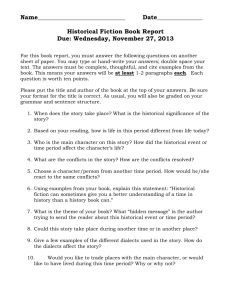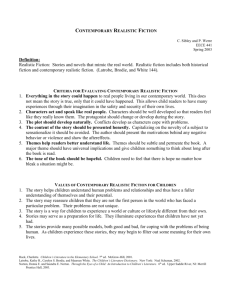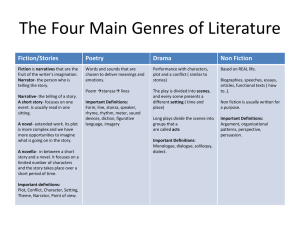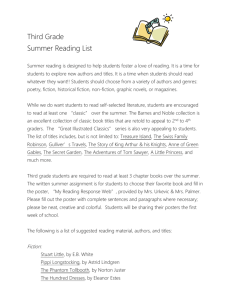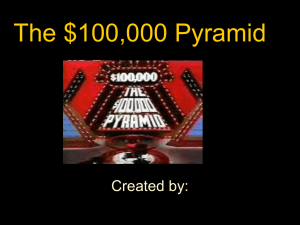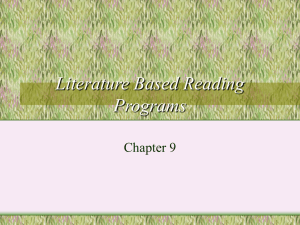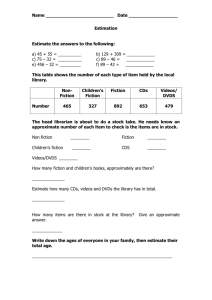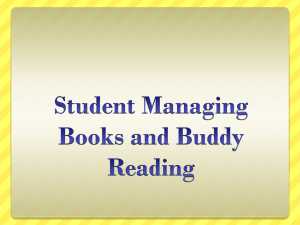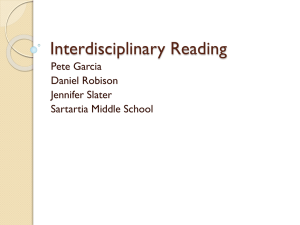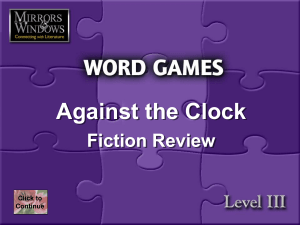VALUES OF HISTORICAL FICTION FOR CHILDREN
advertisement
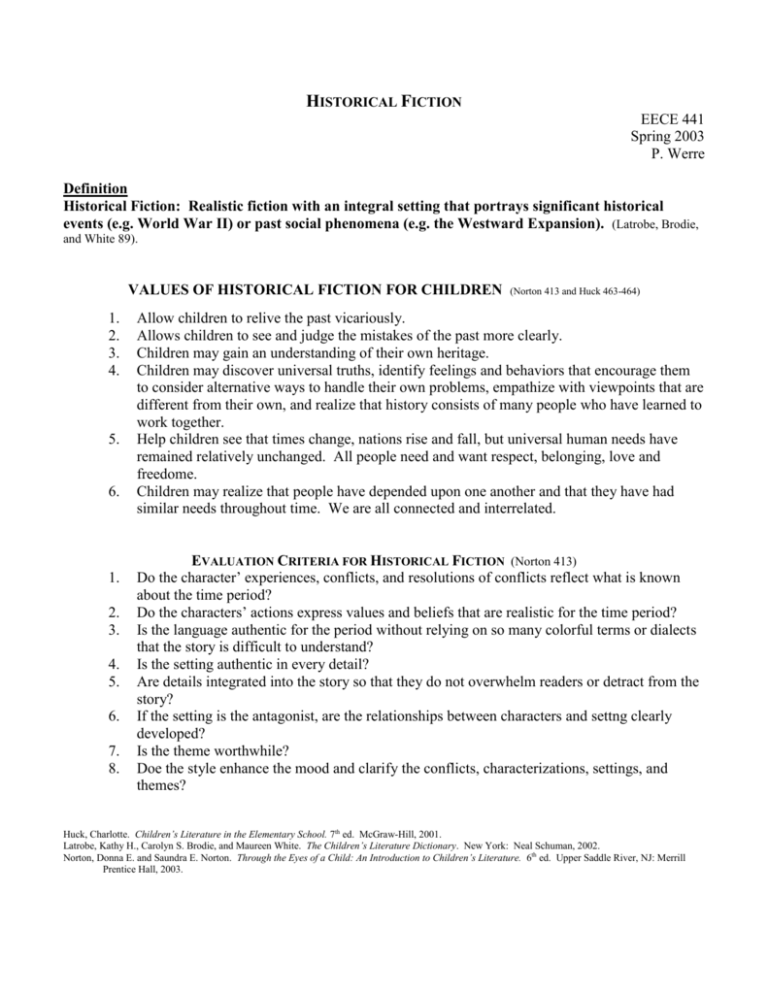
HISTORICAL FICTION EECE 441 Spring 2003 P. Werre Definition Historical Fiction: Realistic fiction with an integral setting that portrays significant historical events (e.g. World War II) or past social phenomena (e.g. the Westward Expansion). (Latrobe, Brodie, and White 89). VALUES OF HISTORICAL FICTION FOR CHILDREN 1. 2. 3. 4. 5. 6. 1. 2. 3. 4. 5. 6. 7. 8. (Norton 413 and Huck 463-464) Allow children to relive the past vicariously. Allows children to see and judge the mistakes of the past more clearly. Children may gain an understanding of their own heritage. Children may discover universal truths, identify feelings and behaviors that encourage them to consider alternative ways to handle their own problems, empathize with viewpoints that are different from their own, and realize that history consists of many people who have learned to work together. Help children see that times change, nations rise and fall, but universal human needs have remained relatively unchanged. All people need and want respect, belonging, love and freedome. Children may realize that people have depended upon one another and that they have had similar needs throughout time. We are all connected and interrelated. EVALUATION CRITERIA FOR HISTORICAL FICTION (Norton 413) Do the character’ experiences, conflicts, and resolutions of conflicts reflect what is known about the time period? Do the characters’ actions express values and beliefs that are realistic for the time period? Is the language authentic for the period without relying on so many colorful terms or dialects that the story is difficult to understand? Is the setting authentic in every detail? Are details integrated into the story so that they do not overwhelm readers or detract from the story? If the setting is the antagonist, are the relationships between characters and settng clearly developed? Is the theme worthwhile? Doe the style enhance the mood and clarify the conflicts, characterizations, settings, and themes? Huck, Charlotte. Children’s Literature in the Elementary School. 7th ed. McGraw-Hill, 2001. Latrobe, Kathy H., Carolyn S. Brodie, and Maureen White. The Children’s Literature Dictionary. New York: Neal Schuman, 2002. Norton, Donna E. and Saundra E. Norton. Through the Eyes of a Child: An Introduction to Children’s Literature. 6th ed. Upper Saddle River, NJ: Merrill Prentice Hall, 2003.
